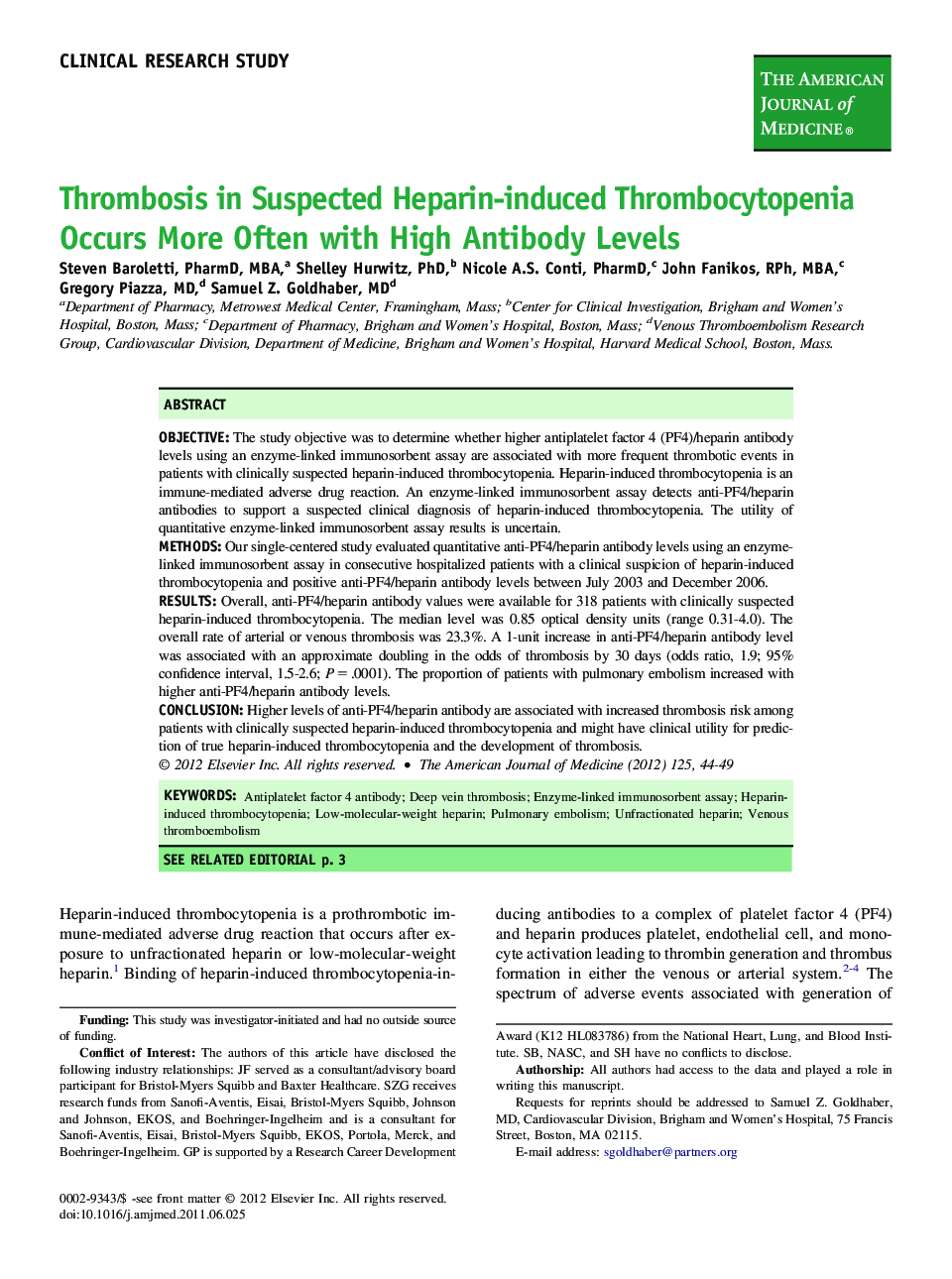| Article ID | Journal | Published Year | Pages | File Type |
|---|---|---|---|---|
| 2716517 | The American Journal of Medicine | 2012 | 6 Pages |
ObjectiveThe study objective was to determine whether higher antiplatelet factor 4 (PF4)/heparin antibody levels using an enzyme-linked immunosorbent assay are associated with more frequent thrombotic events in patients with clinically suspected heparin-induced thrombocytopenia. Heparin-induced thrombocytopenia is an immune-mediated adverse drug reaction. An enzyme-linked immunosorbent assay detects anti-PF4/heparin antibodies to support a suspected clinical diagnosis of heparin-induced thrombocytopenia. The utility of quantitative enzyme-linked immunosorbent assay results is uncertain.MethodsOur single-centered study evaluated quantitative anti-PF4/heparin antibody levels using an enzyme-linked immunosorbent assay in consecutive hospitalized patients with a clinical suspicion of heparin-induced thrombocytopenia and positive anti-PF4/heparin antibody levels between July 2003 and December 2006.ResultsOverall, anti-PF4/heparin antibody values were available for 318 patients with clinically suspected heparin-induced thrombocytopenia. The median level was 0.85 optical density units (range 0.31-4.0). The overall rate of arterial or venous thrombosis was 23.3%. A 1-unit increase in anti-PF4/heparin antibody level was associated with an approximate doubling in the odds of thrombosis by 30 days (odds ratio, 1.9; 95% confidence interval, 1.5-2.6; P = .0001). The proportion of patients with pulmonary embolism increased with higher anti-PF4/heparin antibody levels.ConclusionHigher levels of anti-PF4/heparin antibody are associated with increased thrombosis risk among patients with clinically suspected heparin-induced thrombocytopenia and might have clinical utility for prediction of true heparin-induced thrombocytopenia and the development of thrombosis.
